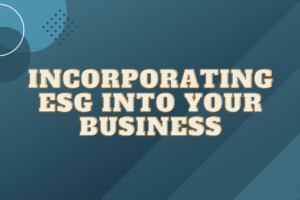Incivility: A Route to Unsustainable Business
Introduction

In today’s society, it’s all too common to encounter rudeness, grumpy behavior, and a penchant for making sarcastic or unnecessary comments. These behaviors have unfortunately become pervasive, permeating various aspects of daily interactions. What’s alarming is that many individuals engage in these actions without fully grasping the profound impact their behavior can have on others. This growing trend toward incivility is a concerning hallmark of contemporary life.
Unlike overtly illegal actions, such as theft or assault, these seemingly minor acts of incivility often fly under the radar. They occur so frequently and casually that they’re often dismissed as inconsequential or even normal. However, the truth is that their effects can be insidious and far-reaching, creating an atmosphere of toxicity and discord in both personal and professional settings.
The problem with incivility lies in its subtlety. While it may not violate any laws or regulations, its corrosive effects on interpersonal relationships and organizational culture are significant.
A Tale of Two Attitudes: Civility and Incivility
Workplace civility is like the glue that holds a professional environment together. It involves more than just following rules; it’s about genuinely caring for your coworkers and treating them with kindness and consideration. Civility manifests in simple gestures like saying “please” and “thank you,” listening attentively to others’ ideas, offering help when needed, and refraining from gossip or negative remarks. When people practice civility in the workplace, it creates a positive atmosphere where everyone feels respected and valued. This, in turn, fosters trust and strengthens relationships among team members.
Conversely, incivility in the workplace can have damaging effects. It can take many forms, from overt acts of disrespect like yelling or belittling others to subtler behaviours like ignoring someone’s contributions or spreading rumours. Regardless of its form, incivility undermines morale, erodes trust, and disrupts productivity.
Intent versus impact is a crucial distinction when evaluating civility. Even if an individual’s intentions are not malicious, the effects of their actions on others hold significance. For instance, a seemingly innocuous comment or jest, if it inflicts harm, offense, or discomfort upon others, can be perceived as uncivil.
Workplace Incivility
Workplace incivility is essentially a social interaction that unfolds among two or more parties in a professional setting. What sets incivility apart is its inherent ambiguity, as the interpretation of this interaction can vary among different parties involved. The intent to harm, as perceived by the instigator, the target, or even bystanders, remains ambiguous.
In contrast to more overt acts like aggression (such as vandalism, threats, or sabotage) or violence (like physical assault or homicide), where the intent to harm is unmistakable, acts of incivility present a challenge in discerning intent for all relevant parties. The ambiguity surrounding the intention to harm or injure becomes apparent when incivility is committed.
Is Incivility a Personal Issue?
Incivility is not confined to being a personal issue; it disrupts established work patterns and undermines the effectiveness of its targets and those who witness it. Furthermore, it can serve as the initial point in a social interaction that may escalate into more intentional and overt acts of workplace aggression.
Incivility can alter social fabric of a Human Being.
It’s like throwing a stone into a pond—the effects spread out and touch different parts of our lives. The negativity from incivility doesn’t confine itself to a single moment; it lingers and seeps into our emotional well-being, affecting our drive and how well we perform our duties. Moreover, it leaves a mark on our relationships and interactions with others, shaping the way we treat people in our daily lives. Recognizing and curbing incivility is crucial for maintaining a positive atmosphere and fostering healthier connections, be it in the workplace, at home, online, or within our communities.
These seemingly minor acts of disrespect or rudeness can have far-reaching consequences on organizational culture, employee morale, and overall productivity. Despite their subtlety, these instances of incivility can erode trust among team members, disrupt collaboration, and create a toxic work environment.
Examples of Incivility at the workplace, have you experienced them?
Incivility can be:

Inconspicuous behaviours that are less obvious or noticeable compared to overt acts of rudeness or disrespect. Some examples are mentioned below:
Rudeness:
- Involves disrespectful, impolite, or discourteous behavior.
- Examples include dismissive comments and sarcastic remarks.
Unfair behaviour:
- Creates an uneven playing field within the workplace.
- Examples include playing favourites and inconsistently applying consequences.
Not Listening:
- Involves ignoring or dismissing others’ perspectives.
- Reflects a lack of empathy and hampers effective communication.
Ignoring Somebody’s Presence:
- Goes beyond physical neglect to include neglecting contributions or input.
Ignoring Somebody’s Credit in Collaborative Work:
- Fails to acknowledge contributions to collaborative efforts.
Speaking with an Arrogant Tone:
- Communication with arrogance creates a hostile atmosphere.
Invading the Space of a Fellow Employee:
- Violates physical or emotional boundaries.
Evident- clear and obvious acts of rudeness or disrespect that are easily noticed. Some examples are mentioned below:
Giving the silent treatment:
- Ignoring someone intentionally as a form of punishment or to express disapproval.
Talking about somebody behind their back:
- Engaging in gossip or spreading rumours about someone without their knowledge or consent.
Sending nasty, belittling notes:
- Writing or sending messages that are derogatory or demeaning.
Making humiliating remarks:
- Saying things that embarrass or degrade someone in front of others.
Showing lack of respect through comments or gestures:
- Behaving in a way that demonstrates a lack of regard for someone’s feelings or dignity.
Making accusations related to professional competence:
- Blaming someone for mistakes or shortcomings in their work in a demeaning or accusatory manner.
COLLATERAL DAMAGE: THE UNINTENDED EFFECTS OF INCIVILITY

Incivility often cascades downward in organizational hierarchies. It’s not uncommon for those in positions of higher authority to be the ones initiating uncivil behavior, with research showing that instigators of incivility are three times more likely to hold higher status than their targets. However, it’s crucial to recognize that incivility can occur at any level within an organization, not just from superiors to subordinates. While top-down incivility may be more prevalent, it’s also common for peers or colleagues to engage in uncivil behavior towards each other. Thus, addressing and preventing incivility requires a comprehensive approach that acknowledges its potential occurrence across all levels of the organization.

The effects of incivility can spread more broadly and more quickly today than in the past, as technologies facilitate rapid and asynchronous communication. Instigators of incivility can obnoxiously abuse their targets at (electronic) arm’s length, for example, and then blame any foul on the terse nature of electronic messages.
INCIVILITY PROMOTES NEGATIVITY, KILLS CREATIVITY
Words and deeds conveying disrespect can cause psychological harm to the target. When norms for mutual respect in the workplace are not honoured, perceptions of unfairness, or feelings of interactional injustice, occur in the target, generating a state of negative affect. Targets of incivility assess the uncivil action, recognize the unfairness, and experience hurt feelings, displaying both cognitive and affective impairment.
Nearly everybody who experiences workplace incivility responds in a negative way, in some cases overtly retaliating. Employees are less creative when they feel disrespected, and many get fed up and leave. About half deliberately decrease their effort or lower the quality of their work. And incivility damages customer relationships.
HOW DOES IT AFFECT THE BUSINESS?
Whether the uncivil behavior is intentional or not, whether it’s acknowledged or dismissed, its impact is palpable and pervasive.
Incivility doesn’t operate in isolation; it spreads like a contagion, infecting the atmosphere and poisoning the relationships between employees, as well as between employees and customers. Even those who merely witness or are indirectly exposed to such behavior can become unwitting carriers, internalizing the negativity, and reflecting it in their own attitudes and actions.
Imagine a situation where a coworker is mean to another employee. The person who’s treated badly might start feeling stressed out and upset. This can make it hard for them to be patient and friendly with customers or to work well with other coworkers. It’s like a chain reaction—when one person is rude, it can make everyone else feel grumpy too. This can mess up teamwork, make it harder to get stuff done, and make everyone feel unhappy at work. And when people aren’t happy at work, the company’s success can suffer.
INCIVILITY IS BOUNDARYLESS
Employees may carry the emotional burden of uncivil interactions at home, impacting their personal relationships and overall well-being. This blurring of boundaries between professional and personal life amplifies the reach of incivility, perpetuating its detrimental effects far beyond the confines of the office walls.
In essence, incivility exacts a toll not only on the individuals directly involved but also on the collective culture and performance of the business as a whole. Recognizing and addressing this issue is essential for fostering a positive work environment where respect, collaboration, and productivity can thrive.
INCIVILITY IS BALEFUL- MENTALLY & PHYSICALLY
It can cause a lot of stress and make people feel anxious or upset. Over time, this can even lead to more serious problems like feeling sad all the time or burning out from work.
Not only does rudeness affect how people feel, but it can also make them physically sick. It can raise blood pressure, mess up sleep, and make it easier to get sick. All of this can make it harder for people to do their jobs well and can even make them want to quit.
Business and Sustainability
Sustainability is super important for businesses today because it’s not just about making money – it’s about making sure we can keep making money for a long time without hurting the planet or people. When businesses are sustainable, it means they’re thinking about how their actions affect the environment, society, and their own future. To monitor the same UNDP has come up with SDG. SDGs monitor Corporates, Governments & their actions across the world.
Goal 3 SDGs: Good Health and Well Being

Sustainable Development Goal 3 (SDG 3) is a global initiative designed to tackle various health challenges and promote well-being on a worldwide scale. SDG 3 aims to ensure that people everywhere have the opportunity to live healthy lives and enjoy a good standard of health, regardless of their age, gender, or socioeconomic status.
Incivility directly undermines the goal of achieving universal health and well-being by fostering a negative social environment. This atmosphere can have detrimental effects on both mental and physical health, thus impeding progress towards ensuring that everyone can live healthy and fulfilling lives.
Goal 16 SDGs: Peace Justice and Strong Institutions

Sustainable Development Goal 16 (SDG 16), aims to promote peaceful and inclusive societies, provide access to justice for all, and build effective, accountable institutions. Incivility creates a toxic social atmosphere marked by disrespect, hostility, and conflict, sabotaging endeavours to nurture peace and social unity.
In these environments, trust erodes, collaboration falters, and societal rifts widen, amplifying the risk of social upheaval and violence, thereby impeding the advancement towards the harmonious and inclusive communities envisioned by SDG 16.
From Disrespect to Dialogue: Addressing Incivility
Just like putting out a small fire before it spreads, addressing incivility early on is key. Think of incivility as those small embers – if we don’t deal with them right away, they can cause big problems for our organizations.
Recognizing the harm incivility can cause, it’s important to take action before things get out of hand. Creating an environment where respect is valued and positive communication is encouraged can help prevent minor issues from turning into major problems. When we address incivility, we’re not just protecting individuals’ well-being; we’re also making our workplace healthier and more productive.
Corporates can address Incivility by:
Implementing Clear Policies:
Establish unambiguous and detailed policies that explicitly define incivility and delineate the repercussions for engaging in such conduct. Ensure these policies are easily accessible to all employees and consistently enforced across the organization.
Providing Comprehensive Training and Sensitization:
Offer regular, engaging training sessions and workshops aimed at nurturing a culture of respect and inclusivity within the workplace. These sessions should not only educate employees on the detrimental effects of incivility but also equip them with practical tools for conflict resolution, effective communication, and cultivating empathy. Brochures for Awareness
Creating Awareness via Informative Materials:
Develop visually appealing and informative brochures or informational materials that underscore the adverse impacts of incivility while promoting positive workplace behaviors. Disseminate these materials widely throughout the organization, leveraging various communication channels to ensure broad exposure.
Remember, showing respect, even to those who may not deserve it, isn’t about them – it’s about us. It reflects the kind of people we are and the kind of workplace we want to create.
CONCLUSION

The pervasive issue of incivility in today’s society, particularly in professional settings, demands our attention and action. While seemingly minor, acts of disrespect and rudeness have profound and far-reaching consequences on individual well-being, organizational culture, and overall productivity.
The subtle nature of incivility makes it easy to overlook or dismiss, but its effects are anything but inconsequential. From eroding trust and morale to damaging relationships and hindering collaboration, incivility undermines the very fabric of workplaces, creating toxic environments where negativity thrives.
Addressing incivility requires a proactive approach that emphasizes the importance of respect, empathy, and positive communication. Incivility Prohibition Policy can play a vital role in Organizations, by fostering a culture where civility is valued and encouraged, organizations can mitigate the harmful effects of incivility and create healthier, more productive work environments.
Ultimately, combating incivility is not just about protecting individuals from harm; it’s about nurturing a culture of respect and dignity that benefits everyone involved. It’s about recognizing the power of our words and actions to shape the world around us and choosing to build a workplace where kindness and consideration prevail.


